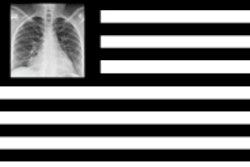The American College of Radiology (ACR) has come out swinging in response to an article on healthcare costs published online February 20 in Time magazine that charges ACR with obstructing efforts to discourage overuse of advanced imaging in the Medicare program.
Writer Steven Brill's 26,000-word article investigates why medical costs are so high -- and it lists the overuse of advanced imaging, such as CT and MRI, as part of the problem.
Congress regulates Medicare's reimbursement formulas for advanced imaging exams, as well as any actions Medicare can take to limit the use of CT and MRI scans when they might not be medically necessary, Brill wrote. And ACR is a key congressional lobbyist, according to Brill.
In fact, ACR is currently urging Congress to pass HR 3269, or the Diagnostic Imaging Services Access Protection Act, which would repeal the multiple procedure payment reductions adopted by the U.S. Centers for Medicare and Medicaid Services (CMS) to the professional component of Medicare reimbursement for multiple diagnostic imaging services administered by the same physician, to the same patient, at the same session.
"Standing at the ready to make sure Congress keeps Medicare at bay is, among other groups, the American College of Radiology, which on November 14 ran a full-page ad in the Capitol Hill-centric newspaper Politico urging Congress to pass the Diagnostic Imaging Services Access Protection Act," Brill wrote in Time. "It's a bill that would block efforts by Medicare to discourage doctors from ordering multiple CT scans on the same patient by paying them less per test to read multiple tests of the same patient."
However, Brill's article contains factual errors, and it mischaracterizes ACR's efforts against Medicare cuts to diagnostic imaging, the organization said in a letter it submitted to Time on February 22. Brill's assertion that ACR is trying to keep Medicare "at bay" is incorrect: HR 3269 would not directly affect the ordering of advanced imaging scans, or the providers who order them.
ACR pointed out that HR 3269 affects the interpretation of scans, not the ordering of them -- a key point of differentiation in the debate over who's at fault for rising imaging costs.
"As a referral-based specialist, the role of the radiologist is nearly entirely to perform, interpret, and report studies ordered by other physicians," ACR said in its letter.
ACR also pointed out that because each study produces its own set of images, radiologists are expected to spend the same amount of time interpreting them regardless of the date they were acquired. The bill asks Medicare to provide evidence that the 25% cut is warranted.



















